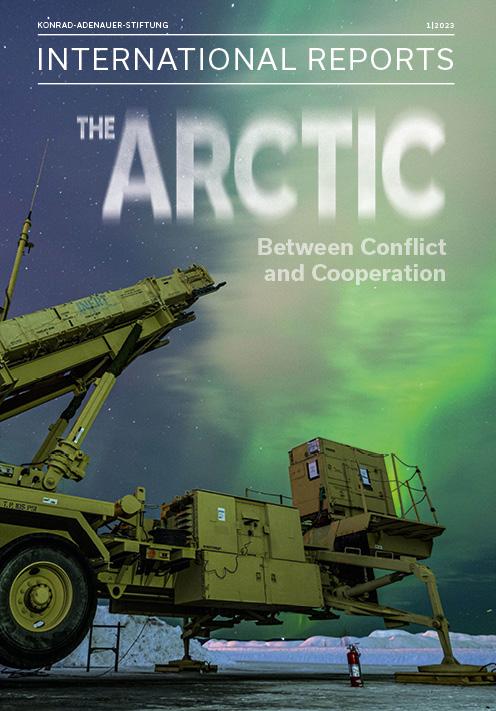Temperatures in the Arctic are rising fast, which has moved the prospect of an ice-free North Pole from the realm of fantasy to the realm of possibility. This has far-reaching implications for the entire region, which has now become part of the debate on security policy as a potential source of conflict. It is therefore worth taking a closer look at the facts and causal connections and at the interests of the stakeholders involved.
View table of contentsAbout this series
International Reports (IR) is the Konrad-Adenauer-Stiftung's periodical on international politics. It offers political analyses by our experts in Berlin and from more than 100 offices across all regions of the world. Contributions by named authors do not necessarily reflect the opinions of the editorial team.
Order details
Our periodical on international politics is published four times a year. We provide you with background information on what is happening in the world – free of charge. Use our registration form and with just a few clicks you can read the digital version of our political journal or order the print version in German or English.
Editor
Dr. Gerhard Wahlers
ISBN
0177-7521
Benjamin Gaul
 benjamin.gaul@kas.de
+49 30 26996 3584
benjamin.gaul@kas.de
+49 30 26996 3584

Head of the Department International Reports and Communication
Rana Taskoparan
 rana.taskoparan@kas.de
+49 30 26 996 3623
rana.taskoparan@kas.de
+49 30 26 996 3623

Policy Advisor for Communication and Marketing





